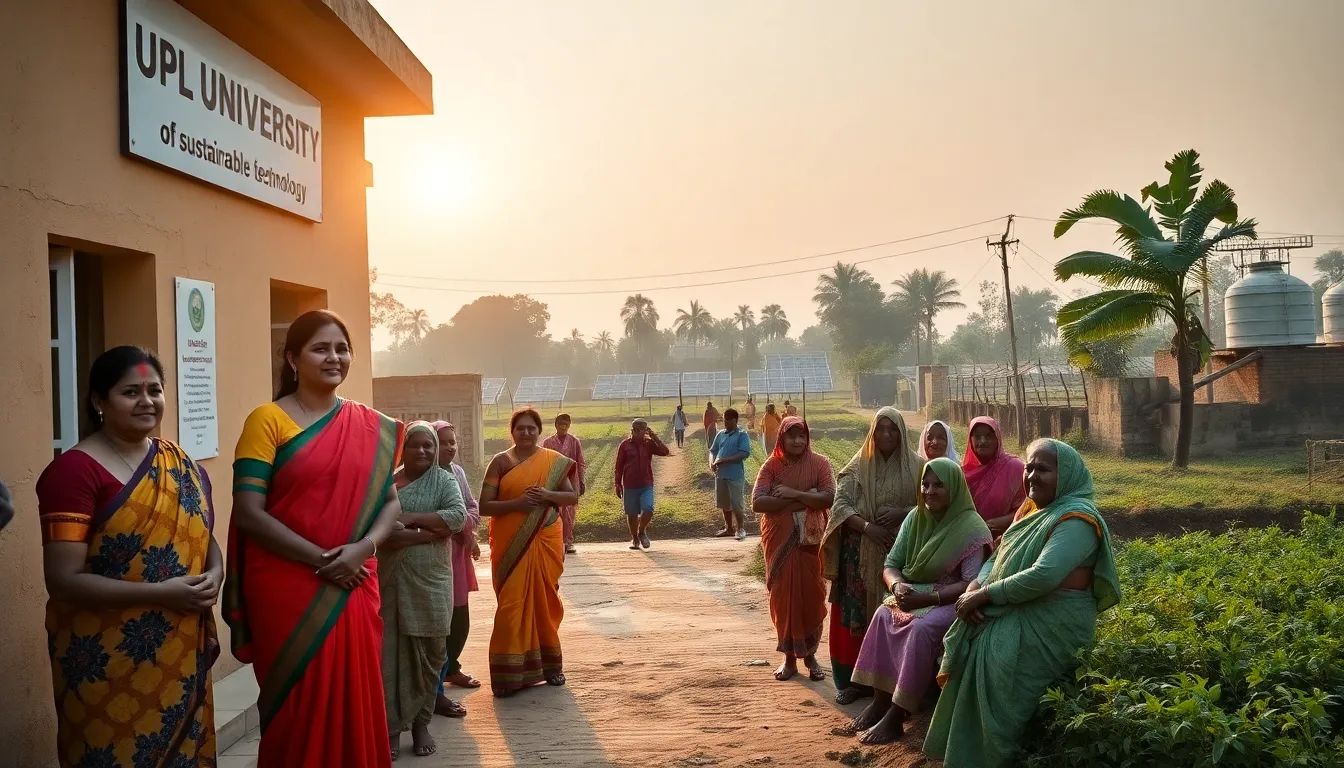Watariya is a village located six kilometres from Valia Taluka in Bharuch district, Gujarat. It has a population of about 2,313 people. This village is unique for its commitment to social welfare and sustainable living. Watariya is the first village in the Bharuch district to start the Shri Ganesh Sugar Factory. It has also become an educational hub with the establishment of UPL University of Sustainable Technology.
The village is run by a female sarpanch, and one of its most notable achievements is the 100% pension benefit for widows. Currently, there are 78 widows in the village who receive benefits from the government’s pension scheme. Furthermore, every household in Watariya has access to a toilet, ensuring better sanitation and hygiene for its residents. The village panchayat also helps residents with various government documents, making it easier for them to access services.
**UPL University of Sustainable Technology**: Paving the Way for a Bright Future
The UPL University of Sustainable Technology in Watariya is a symbol of quality education focused on industry needs. Established 14 years ago, it has empowered over 2,000 students with excellent education and moral values, transforming the lives of more than 1,000 families. The university designs its courses to meet the current and future needs of industries, ensuring that students are well-prepared for the job market.
Programs are crafted with input from industry experts, bridging the gap between theoretical knowledge and practical skills. Students can choose from various fields, including Chemical Engineering, Mechanical Engineering, Electrical Engineering, Environmental Science, and Computer Engineering. The university emphasizes industrial internships and project work, providing students with invaluable experience in leading companies both in India and abroad. This hands-on experience not only equips students with technical skills but also fosters teamwork, leadership, and problem-solving abilities.
Every year, the university organizes placement drives with top companies, ensuring that students secure attractive job offers. The placement cell guarantees guidance for registered candidates, aiming for a 100% placement rate. The faculty at UPL University comprises professionals from renowned institutions, enhancing the quality of education.
The campus offers state-of-the-art facilities, including smart classrooms, advanced labs, and a rich library. It also provides accommodation for distant students and transport services for nearby towns.
**Environmental Responsibility**: A Core Value
The UPL University of Sustainable Technology takes its name seriously. It actively promotes environmental responsibility through initiatives like biogas production, solar energy systems, rainwater harvesting, and waste management. The green campus serves as a model for students, encouraging them to work towards a sustainable future.
**Visionary Leadership**: Ashok Panjwani
Ashok Panjwani leads the UPL University of Sustainable Technology with a wealth of experience. He graduated from the Institute of Chemical Technology in Mumbai and has over 51 years of experience in the chemical and agrochemical industries. Panjwani has worked with prestigious companies and is currently an Executive Director at UPL Limited. His leadership extends to various environmental and consultancy projects across India.
He is also involved with several NGOs and holds notable positions, including the President of the Jhagadia Industries Association. His contributions to the chemical industry have earned him multiple awards, including the Distinguished Alumnus Award for Professional Excellence.
**A Commitment to Education**
The UPL University of Sustainable Technology was established by merging two institutions to offer high-quality education and training tailored to the industry’s needs. It aims to produce skilled professionals who can contribute effectively to society and the economy.
**Chairwoman Emeritus Sandra Shroff**
Sandra Shroff, the Chairwoman Emeritus, emphasizes preparing future leaders equipped with the necessary knowledge and skills to tackle global challenges. The university focuses not just on academic skills but also on innovation, ethical practices, and global citizenship.
Watariya village stands as a beacon of hope and progress in Gujarat, demonstrating how a community can empower its members and promote sustainability. The village’s initiatives serve as an example for others, showing that with the right support and resources, positive change is achievable.


Leave a Reply